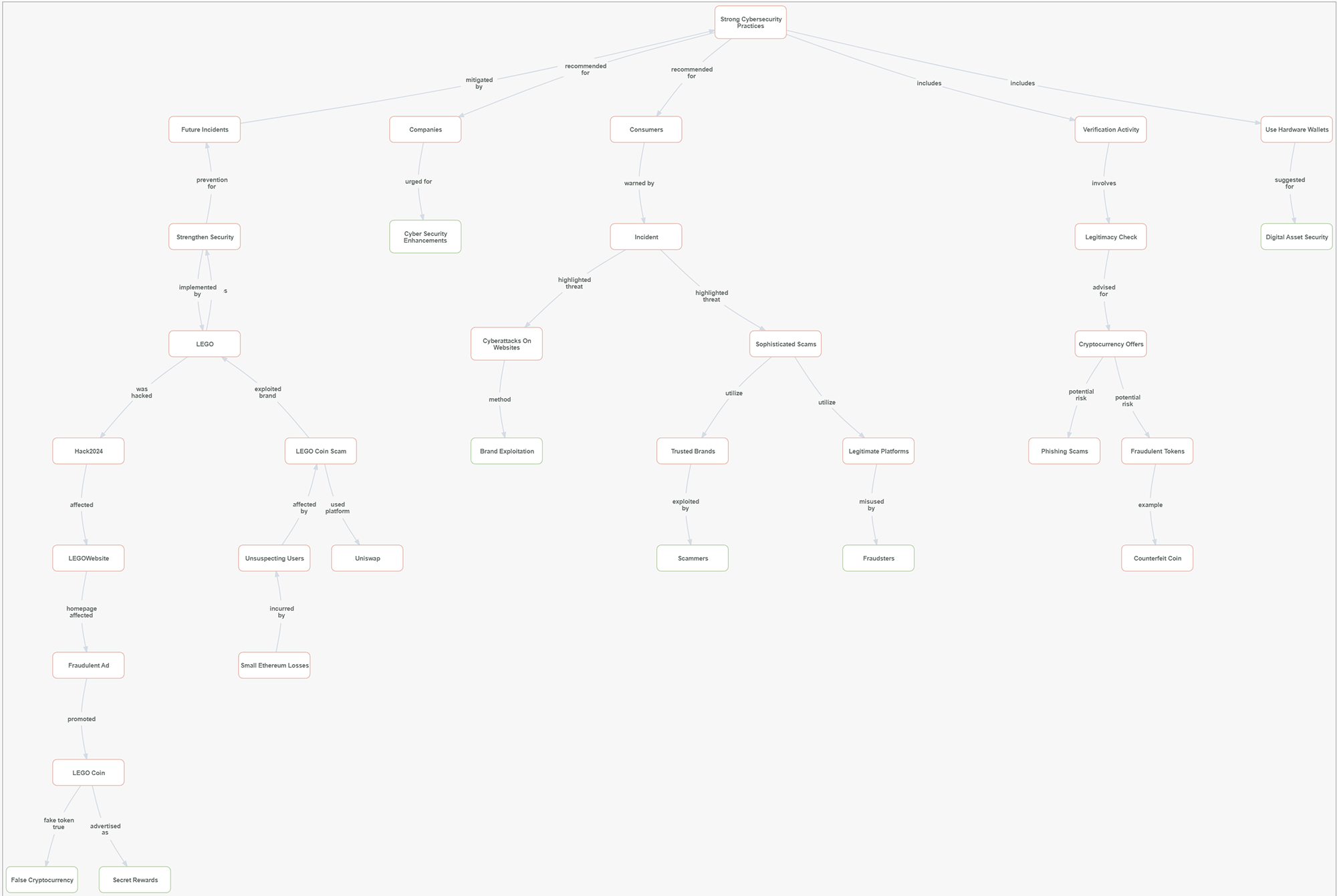
Communication
Investment
Platform
Security
Miscellaneous
Reviews
Compare the wallets
Top WalletsTrezor
Trezor Safe 5BlockStream
BlockStream JadeLedger
Ledger Nano XSafePal
SafePal S1 ProEllipal
Ellipal Titan 2

In October 2024, the official LEGO website was compromised by hackers to promote a fake cryptocurrency called "LEGO Coin." The breach replaced a banner on LEGO's homepage with a fraudulent ad encouraging visitors to purchase a fake coin via Uniswap using Ethereum. The hack, which lasted for about 75 minutes, was promptly identified and resolved by LEGO, with no user accounts compromised. The scam aimed to lure users into buying the fake coin through misleading promises of unlocking rewards.
In October 2024, the LEGO website was hacked and used to promote a fake cryptocurrency, "LEGO Coin." The hackers replaced the homepage banner with a scam ad leading to a fake Uniswap page where users could purchase the bogus token using Ethereum. The attack was resolved within 75 minutes, with no user accounts compromised and minimal financial losses. LEGO has since implemented measures to prevent future breaches. This has been categorized as a platform scam, if you want to see more platform scams feel free to have a read of these.

In October 2024, the official LEGO website was briefly compromised by hackers who replaced the homepage banner with an advertisement promoting a fake cryptocurrency called "LEGO Coin." The ad misled visitors with promises of secret rewards and directed them to a Uniswap platform where they could purchase the fake token using Ethereum. The scam lasted for 75 minutes before LEGO identified and removed the fraudulent content. Fortunately, no user accounts were compromised, and losses were limited to a few hundred dollars. LEGO assured the public that the breach was resolved and measures were in place to prevent future incidents. The hack highlights the growing threat of crypto scams and the need for robust website security.
| Entity | Related Search Terms |
|---|---|
| LEGO Coin | Fake LEGO cryptocurrency, LEGO scam |
| Uniswap | Uniswap scam, crypto exchange fraud |
| Ethereum | Crypto used in scams, ETH fraud |
| LEGO Website | Corporate website hack, LEGO hack |
| Cybercriminals | Website hacking, crypto hackers |
| ZTBricks | Social media exposure, Twitter leak |
A hardware wallet could have helped protect users from this type of scam by ensuring that their private keys and assets remained securely stored offline, even if they clicked on malicious links.